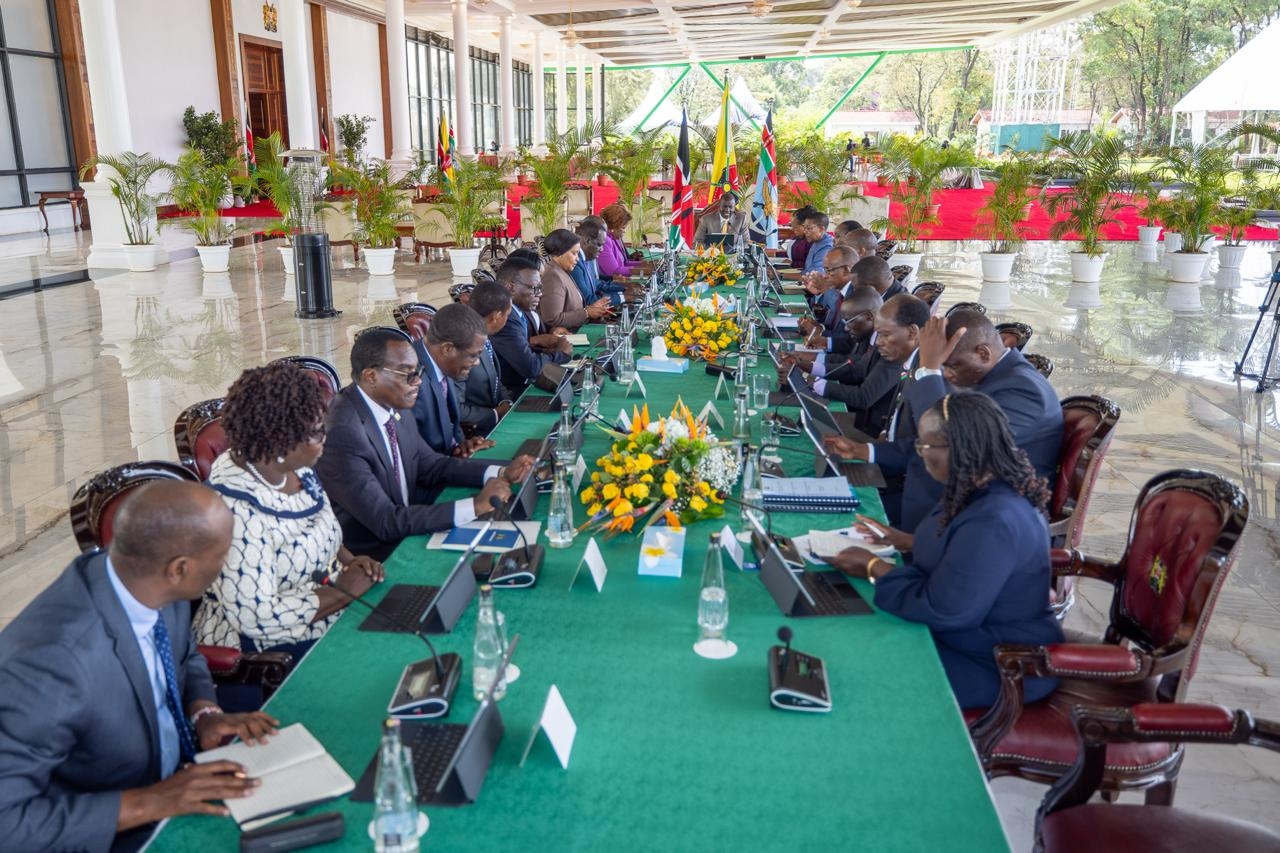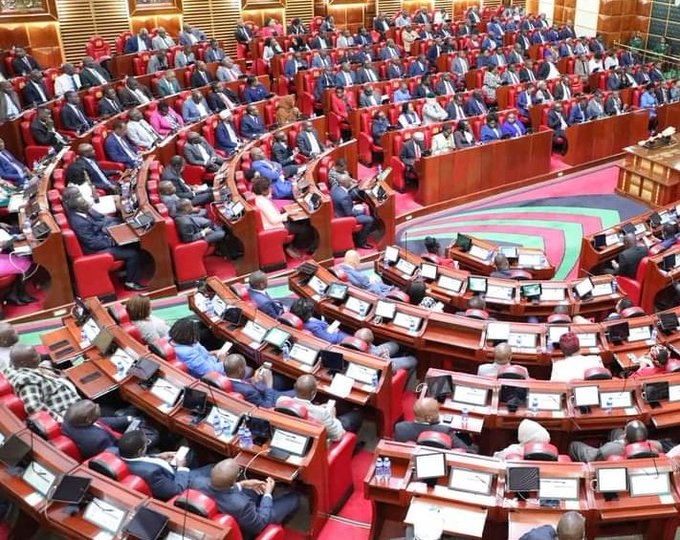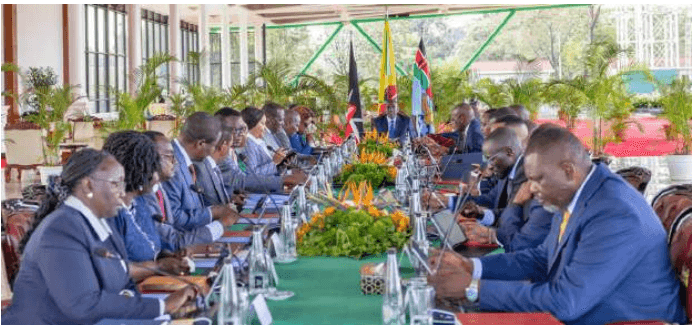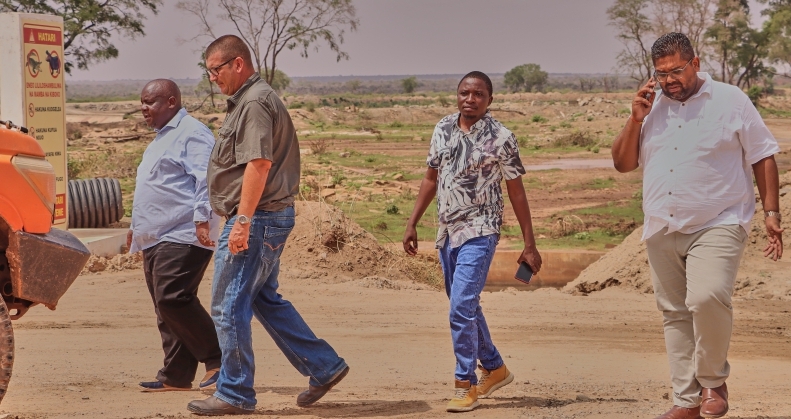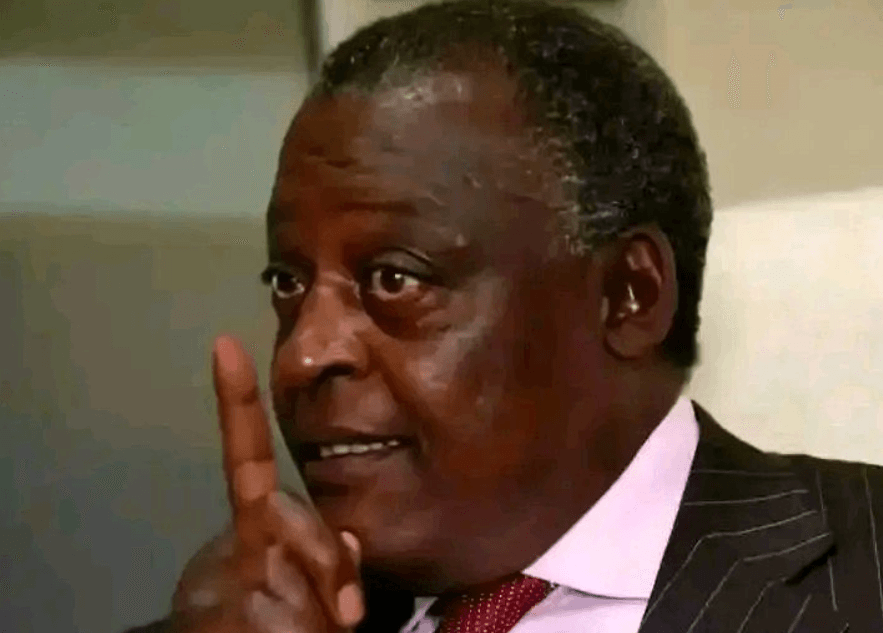In the vast rangelands of Taita Taveta county, women are defying community norms that have for long hindered them from taking part in conservation.
The bold female rangers are shunning traditional household chores and joining their male counterparts in the conservancies, determined to break the gender barriers.
"We are optimistic that the future will be brighter for women taking part in wildlife conservation. The campaign has just started and there is much light at the end of the tunnel," Domitila Wakesho, a corporal ranger at the Taita Taveta Wildlife Conservancies Association, told the Star.
She is the first woman to be promoted to the rank of a corporal in the region and is determined to see her peers follow in her footsteps.
Wakesho is among 52 female rangers working within the vast conservancies. There are 250 rangers within the community conservancies.
The rangers are in charge of 33 conservancies and ranches spread across 1.1 million acres, including critical wildlife dispersal and migratory corridors of the Tsavo ecosystem.
Speaking while marking the World Female Ranger Week in Voi, the youthful conservationist said she is proud of having achieved her dream of being a ranger.
"I want to make a contribution to conservation as a ranger. It is fulfilling to wake up at dawn and lead patrols against poachers in the sleepy woodlands," she said.
The World Female Ranger Week is celebrated June 23-30 to recognise the courage and contribution of women dedicated to protecting wildlife.
Being among the first women to join the prfoession, Wakesho's journey has not been easy due to community myths and misconceptions.
Traditionally, women were not allowed to do ranching and herding as it was the preserve of Taita men.
The rangelands were considered the community's sacred places and women were not allowed in.
However, a deliberate campaign by TTWCA focusing on advancing gender equity has paid off.
The campaign is part of a wider action plan to break cultural barriers that have for years prevented women from taking part in conservation.
"It was difficult when we came in because people did not believe that we could do the day-long patrols and other conservancy work like our male counterparts," Wakesho said.
Time has, however, proved the naysayers wrong as the female rangers are slowly becoming effective guardians of the rangelands.
But there is a need to recruit more of them to create gender balance and restructure the community's social norms. The higher ranks of rangers are still dominated by men.
"The number is still low and we will appreciate any attempt to recruit more women and promote more to senior positions," Wakesho said.
Jasmine Ngala, is a celebrated female ranger at Mgeno conservancy. Her story, like Wakehso's, raises hopes that women can succeed in the male-dominated field.
She is in charge of 21 rangers, five women and 16 men. Ngala grew up near the conservancy, which fired her desire to join wildlife protection. She wanted to end the booming sale of game meat that fueled poaching.
"I did not like those poachers who were killing wild animals. I promised myself that I would join conservation to fight poaching," Ngala said.
Her team has brought to book some of the notorious poachers in the area. Poaching and sale of game meat have drastically reduced.
"Currently, there are many antelopes and dik diks in the conservancy that were mainly targeted by poachers. We are trying to make it a safer environment for wildlife and livestock," Ngala said.
Over time she has gained valuable skills such as tracking footprints and giving dialogue priority when dealing with poachers.
“My biggest motivation is the support I get from the entire team, especially the male rangers who have gained full confidence in my work. The teamwork has always helped us keep poachers away," Ngala said.
When conducting her daily duties as lead ranger, she is also motivated by the rise of young female rangers and conservationists who are teaming up to break the gender barriers.
Kennedy Maziko, the head ranger at Dawida ranch, says the rise of female rangers cannot go unnoticed and should be embraced by the community.
Although their ranch is yet to recruit a female ranger, he says there is a need to bring women on board to create gender balance.
"I think it is a big challenge to my employer that women will be considered in the next recruitment. This is a positive campaign that will bring good change," Maziko said.
He said the push for gender inclusion in conservation has gained ground in the region, paving the way for easy absorption of female rangers.
According to the Kenya Wildlife Conservancies Association programmes officer Joyce Peshu, World Female Rangers Week is an opportunity to amplify the voices of female rangers across the country.
"It is an opportunity to demonstrate the work they do and ensure that they are able to challenge the social norms in the community," Peshu said.
KWCA is keen on training rangers on gender and gender-based violence to create awareness and understanding among male and female rangers.
Peshu said the awareness will help the conservationists to prevent gender-based violence within their communities and workplaces.
"This will also help them understand the issue of inclusion within the rangers force. It is key because both men and women need to be given opportunity to work," she said.
The officer asked conservancies to consider the needs and priorities of both men and women during recruitment and at workplaces.
Currently, there are 271 female conservancy rangers out of the total 4,201 conservancy rangers across the country, according to data by the Kenya Wildlife Conservancies Association.
"In Taita Taveta county, we are taking the initiative to build the capacity of the conservancy's board members and managers to put in place affirmative action when recruiting rangers," said Taita Taveta Wildlife Conservancies Association gender officer Maurine Nduati.
Inclusion of women in the male-dominated field has yielded fruit, with more women joining the conservancies.
The association is using public awareness campaigns to change the community's perception about women joining conservation.
Nduati said the association is also keen on building the capacity of female rangers and creating policies to help women take up conservation.
“For us, we are building the capacity, offering the platforms and creating the policies that are favourable for women to work in this field that is considered the preserve of men,” she said.
The association is using men as gender crusaders to champion involvement of women to ascend to leadership positions in the conservancies and the rangers chain of command.
Nduati said the gender crusaders help break the cultural barriers that perpetuate discrimination and exclusion of women.
"TTWCA is rising above retrogressive cultural systems by holding dialogue with men and women to make the Tsavo landscape more progressive and sustainable," she said.
The campaign is zeroing in on the crucial themes around gender-based violence and how it causes exclusion of women and youth from leadership and governance of conservancies.





